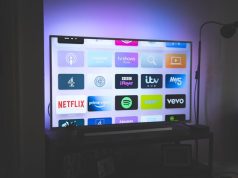The International Energy Agency’s Renewables 2017 report revealed that solar was the world’s fastest growing energy source in 2016. While solar capacity was just 1 gigawatt in 2000, this reached 400 gigawatts by the end of 2017, meaning that solar is set to become the single largest energy source within two decades. This is largely due to a fall in price of 99% since the 1970s, a trend which does not appear to be slowing down. Despite this, BC has been slow to invest in the technology. Why is this and why should BC do more to invest in solar?
Why BC Hasn’t Invested
There are several reasons that BC is falling behind the rest of the world when it comes to solar investment. Firstly, Canadian buildings are energy inefficient. Compared to Europe and America, Canadian homes can require up to 90% more energy. Solar can struggle to meet this demand.
While solar energy is competitive with coal and gas in sunny states, this is less true in Canada. For instance, solar panels for residents of Austin Texas, who receive year-round sun, can essentially ‘bulk buy’ solar power. Conversely, BC residents can end up paying more for solar energy due to limited sunshine.
It is also more expensive because the Canadian government doesn’t offer tax incentives, while the governments of the USA, along with Germany and Japan, do. Furthermore, BC’s electricity rates are among the lowest in the world, at around half that of many other countries. It can therefore be difficult for solar to compete.
Why It Should Commit
Despite the obstacles, it is inevitable that solar will be an essential part of Canada’s energy solution. The environmental damage of coal and gas means that we can’t waste time switching to renewable energy. There is also demand from local residents for lower energy costs.
One BC resident received an electricity bill of just $3, after spending $10,000 on initial installation. If the government can incentivize an initial investment, then it becomes financially viable. While the price of gas will continue to increase, the owner of a solar panel can create energy for free over a solar panel’s lifetime of 25 years.
The world is switching to solar and BC shouldn’t let itself be left behind. While it may not be sunny all year round, there are hydroelectric dams to cover the shortfall in the winter months. The damage of non-renewable energy on the environment and on the bank accounts of residents is too high. The government should be investing now for a long term pay off.








































